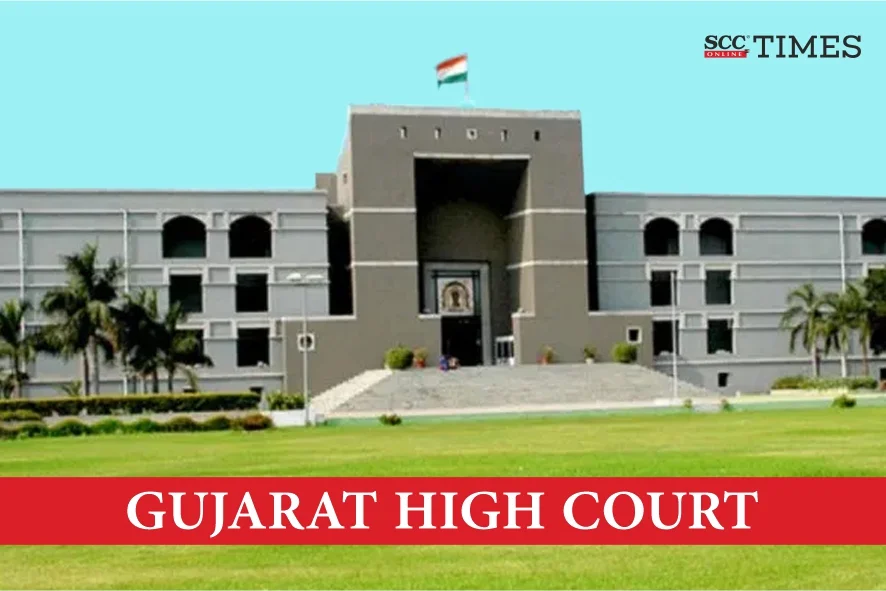Gujarat High Court: In a regular bail application under Section 439 of the Code of Criminal Procedure, 1973, (‘CrPC’) for the offence punishable under Sections 306 and 114 of the Penal Code, 1860 (‘IPC’), Divyesh A. Joshi, J. allowed the bail application and directed for the release of the accused.
The accused had a property dispute with his brother and the deceased worked as a watchman in the premises of the brother of the accused. The deceased was a witness in an affidavit filed by the brother of the accused. It was alleged that the accused approached the deceased and threatened to retract his statement and file another affidavit, otherwise, he would have to face dire consequences. It was stated in the First Information Report that the deceased stopped going to his work. The Prosecution’s case was that before committing suicide, the deceased wrote a suicide note, wherein the name of the accused was stated.
On perusal of the record, the Court noted that the present application was preferred after submission of the chargesheet and the completion of the investigation. The Court also noted that the accused was in jail since 27-08-2023. The Court said that Section 107 of the IPC takes into consideration the instigation by any person to do an act. The Court explained that ‘instigate’ means to goad or urge forward to provoke, incite, urge or encourage to do an act.
The Court said that the contents in the FIR indicated that the accused allegedly goaded the deceased to make an affidavit denying his signature in a particular document but had never intended or instigated the deceased to commit suicide. The Court said that merely asking the deceased to retract his version by filing another affidavit, would not in any manner be considered as an act to instigate, incite or provoking the deceased to commit suicide and if there was any threats or pressure upon the deceased to do a particular act, he could have taken appropriate recourse.
The Court relied on M. Mohan v. State, (2011) 3 SCC 626 wherein the Supreme Court discussed the ingredients of Section 306 of the IPC. It was laid down that for the offence under Section 306 of the IPC, the basic ingredient regarding intentional instigation is required to be proved or established. The word ‘suicide’ would mean the intentional killing of oneself.
Considering the nature of the allegations and the ratio enunciated by the Supreme Court in the aforesaid decision, the Court granted bail to the accused. Thus, the Court allowed the application and directed to release the accused on regular bail after executing a personal bond of Rs.15,000/- with one surety of the like amount to the satisfaction of the Trial Court and subject to the following conditions, that he shall:
-
not take undue advantage of liberty or misuse liberty;
-
not act in a manner injuries to the interest of the prosecution;
-
surrender passport, if any, to the Court concerned within a week;
-
not leave the State of Gujarat without prior permission of the Court concerned;
-
mark presence before the Police Station concerned on alternate Monday of every English calendar month for a period of six months between 11:00 a.m. and 2:00 p.m.;
-
furnish the present address of residence to the Investigating Officer and to the Court at the time of execution of the bond and shall not change the residence without prior permission of this Court.
The Court also said that in case of breach of any of the said conditions the Sessions Judge concerned will be free to issue a warrant or take appropriate action in the matter and it will be open for the Court concerned to delete, modify and/or relax any of the above conditions, in accordance with law.
[Parakramsinh Hathubha v. State of Gujarat, 2024 SCC OnLine Guj 2068, Order dated: 18-03-2024]
Advocates who appeared in this case:
For the applicant: Advocate Ashish M Dagli
For the Respondent: Public Prosecutor Majmudar, Assistant Public Prosecutor LB Dabhi








